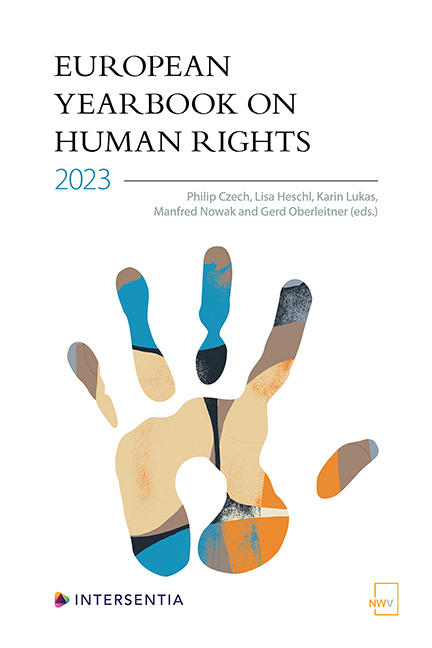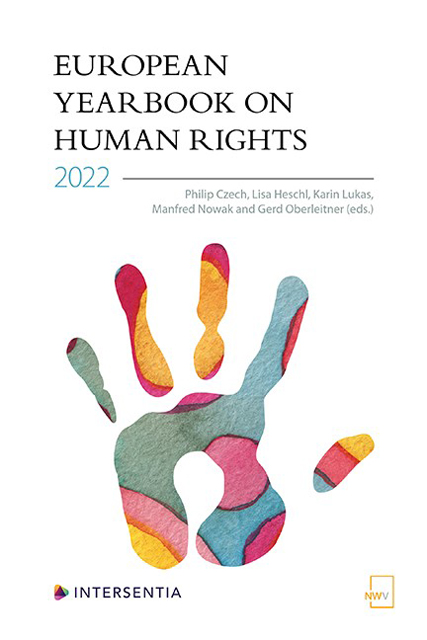4 results in European Yearbook on Human Rights

European Yearbook on Human Rights 2023
-
- Published by:
- Intersentia
- Published online:
- 04 April 2024
- Print publication:
- 30 November 2023

European Yearbook on Human Rights 2022
-
- Published by:
- Intersentia
- Published online:
- 20 April 2023
- Print publication:
- 30 November 2022

European Yearbook on Human Rights 2021
-
- Published by:
- Intersentia
- Published online:
- 22 February 2022
- Print publication:
- 30 November 2021

European Yearbook on Human Rights 2020
-
- Published by:
- Intersentia
- Published online:
- 11 February 2021
- Print publication:
- 01 December 2020

